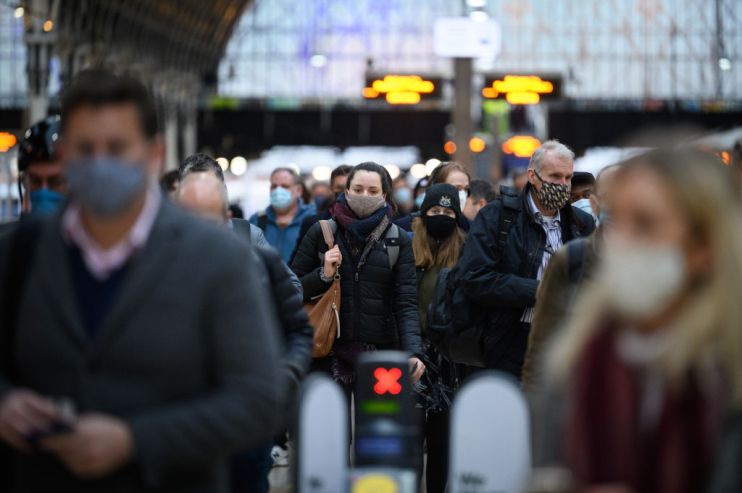Covid fear-mongering will slash through business confidence

Businesses need confidence even more than they need good policy. Whispers from government over the need for Plan C and the possibility of a Plan D, before MPs have even voted on Plan B, are just the latest in a long line of public utterances that undermine business confidence – with very real results. Business optimism, which had risen impressively after the announcement of the Road Map out of lockdown and the subsequent reopening, is now at significant risk according to a recent survey.
This is because what some may consider to be mild interventions matter. Small changes in individual behaviour add up, and at considerable cost. The existing Plan B restrictions alone are expected to cost the economy £4bn per month. A new lockdown could knock 6 per cent off GDP.
These impacts may be worth the cost based on the potential impact of new variants. But government policymaking seems made up on the hoof with vanishingly little robust evidence for sudden changes, making long-term planning difficult. Say what you will about the UK stumbling in the final furlong (or should that be ‘furlough’?) of the Road Map, but the policy did offer businesses some ability to plan – when to bring staff back in, when to order stock and when to make other spending decisions. Contrary to what some in Whitehall think, entire sectors cannot be turned on and off.
Equally troubling is how repeated changes to Covid regulations, and contradicting lines depending on which minister you’re talking to, have merged with ongoing uncertainty about our post-Brexit regulatory and tax landscape. We now have evidence that our economic recovery was stalling some time before the most recent announcements. The GDP figures, showing anaemic 0.1 per cent growth for October, resulted from not only a government which has abandoned its pro-enterprise credentials, but from the erosion of confidence.
After “Getting Brexit Done”, the stage was set for unwinding some of the worst excesses of Brussels anti-business bureaucracy. Throw in a pandemic, however, and the government is raising taxes and intervening far further in the economy than is necessary. If we want to bounce back from Covid faster, not to mention take advantage of the opportunities that Brexit gives us, we need an enterprise culture that rewards risk taking.
Instead, businesses are struggling under the heaviest tax burden since the 1950s, and the economy is carrying a burden of regulation estimated to cost us £220bn a year. Government can – for a limited period – play the Covid-19 card to defend the former. But there is no reasonable excuse as to why Coronavirus should preclude us from igniting the bonfire of red tape that hamstrings firms.
While the Chancellor has voiced his intention to reduce the tax burden, businesses need to trust that this is more than just empty rhetoric. Cuts or reforms to a smorgasbord of taxes, from the bank surcharge to business rates, would be economically beneficial and help boost growth. Not only would the burden of tax on both individuals and businesses fall, but such a reform would reduce the gross economic distortions that occur due to our indefensibly complex tax code.
Reforms won’t happen overnight. Given this government’s apparent fondness towards interference in our economy, perhaps they never will. But in the short term, it must provide certainty to the business community. This means both starting to create a sensible, enterprise-orientated regulatory environment for our new companies, and giving current businesses and their consumers an environment where they can invest and purchase without worrying their money will be wasted when a new lockdown comes along.
Instead the government does the opposite. Ill-thought-out ramblings about the need to increase restrictions, or leaked plans to increase them further, will only serve to reduce investment and harm job creation – especially when there are no corresponding leaks containing impact assessments or cost benefit analyses.
We need a government that speaks judiciously, and acts prudently – with solid evidence for harming our economy further.